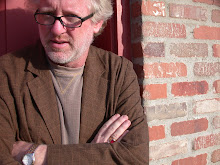
Every magazine at the checkout line at Ralph's seems to offer a quick and easy formula for something we'd otherwise find a challenge. Three Ways to Know if He's Mister Right. Five Secrets to Rock-Hard Abs. Ten Foods that Fight Fat.
The same reductive approach is true of the writer's magazines in the racks at Borders. Five Ways to Hook an Editor. Seven Secrets to Creating Believable Character. Ten Steps to Unleashing Your Creativity.
We have this tendency to reduce the most naggingly complicated things in life to formulae. Who wouldn't rather deal with five bullet points than with countless shades of subtlety? We hate hard work; we love shortcuts, and it's comforting to think that something as elusive and indefinable a developing our writing talents can be broken into a few easy steps.
As my kids went through public school, they seemed to be taught to write using formula after formula—the topic sentence, the outline, or (spare us all!) the Five Paragraph Essay.
Now, I have nothing against topic sentences or outlines—but I can't remember ever deliberately using either. I don't write that way, and I suspect that anyone who consciously tried would end up with a piece of writing as supple and nuanced as Lego. (I have nothing against Lego, either, by the way.)
My youngest son once informed me that, according to his second-grade teacher, every paragraph had to have four sentences. I told him that when his teacher asked him to write a paragraph it had better have four sentences—but that she was simply wrong. A paragraph could consist of one word, or it could fill a book. (Ever try to read The Autumn of the Patriarch?)
To prove my point—or maybe just to show off—I took him to my office and showed him William Faulkner's novel As I Lay Dying. There's an entire chapter in that book that consists of just five words: "My mother is a fish." My son seemed suitably impressed. He seemed to take what I'd said to heart. He asked if he could take the book to his room.
That Thursday night he brought me his Weekly Reading Log to sign. He'd listed all he'd read that week, and I was supposed to sign off to verify to his teacher that he'd actually done the work.
There, between Hop on Pop and The Berenstain Bears Visit the Dentist, he'd carefully printed, "One chapter of William Faulkner's As I Lay Dying."
Ah, short cuts.




